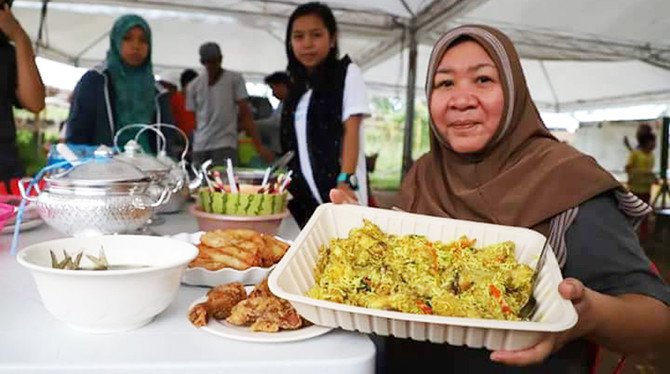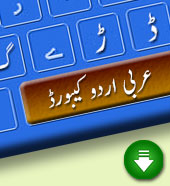Live Makkah
Live Madinah
Urdu Font Download
Latest News:
Padubidri: Fishing boat capsizes; all 7 fishermen on board rescued Alleged atrocity on lawyer: Punjalakatte SI suspended Moral policing at jewellery shop: 4 arrested Bajrang Dal activists try to assault youth, girlfriend in Mangaluru SC to hear Bilkis Bano’s plea against release of 11 convicts on 13 Dec Nusrat Noor: First Muslim Woman to Top Jharkhand Public Service Commission
Latest News:
Padubidri: Fishing boat capsizes; all 7 fishermen on board rescued Alleged atrocity on lawyer: Punjalakatte SI suspended Moral policing at jewellery shop: 4 arrested Bajrang Dal activists try to assault youth, girlfriend in Mangaluru SC to hear Bilkis Bano’s plea against release of 11 convicts on 13 Dec Nusrat Noor: First Muslim Woman to Top Jharkhand Public Service Commission
Ramadan helps to heal the wounds in war-ravaged Philippine city

MANILA, 14 Jun 2018 [Fik/News Sources]: Last year, as Muslims in the Philippines were preparing for Ramadan, Daesh-inspired militants seized Marawi, one of the main Muslims cities in the south.
This set off a months’-long war that displaced thousands of residents and left the city in ruins.
Ismael Ali, a former overseas worker in Saudi Arabia, was among those directly affected by the crisis. He and his family have been living at the temporary camp site for internally displaced persons (IDPs) following the siege.
For Ali, the holy month of Ramadan is the best time to reflect, mend ties and strengthen relationships.
“Ramadan is a time of renewal and by doing this, I am also using this spiritual process to overcome the trauma brought by the conflict,” Ali, an electrical engineer, said.
Ali told Arab News how he worked overseas to provide a better life for his family.
“Immediately after I graduated from Manuel L. Quezon University, I applied for a job in Saudi Arabia ... I worked there for 33 years.”
With the the help of his wife, who also worked as a nurse in Saudi Arabia for 26 years, they built a three-story house in Marawi.
Ali said that he returned to the country in October last year. By that time, the government had declared victory against the Maute group and the city “liberated from terrorist influence.” However, it was only last month (May) when they were allowed to enter ground zero that he was able to see their home again.
“There was nothing left but bullet-riddled walls. It is all shambles. I did not find even a single spoon,” Ali said, as he recalled how the sight of their three-story house completely burned down, hit by a bomb, brought him to tears.
Ali and his family are currently living just outside the city at a temporary shelter in Barangay Bito Buadi Itowa, where he acts as camp manager. Ali said some 463 families, or about 2,000 people, are staying at the camp site. There are 85 tents, each occupied by at least three families, while the others are cramped in 50 bamboo houses.
The IDPs use a small multipurpose hall at the evacuation camp as a makeshift mosque to pray at night during Ramadan.
“There’s a small mosque nearby but it can only accommodate a few people so we decided to use the multipurpose hall as our makeshift mosque just for the Ramadan,” said Ali.
Like the other IDPs, Ali remains hopeful that they can rebuild their houses and return to their normal lives.
“It’s not the end. I accept what happened to us. It’s part of our sacrifice. I just hope that after what happened to us in ground zero, Allah has something good in store for us in the future.”
As camp manager, Ali sees to it that there is unity and harmony in the evacuation camp. “I always tell my fellow evacuees we are all neighbors now and we should stay positive despite the present challenges we are facing. We can overcome these with the help of Allah,” he said.
This positive attitude is shared by fellow evacuee Guhary Pacasum who said that this Ramadan, iftar (breaking of the fast) is not just about sharing of food among the IDPs but also provides the opportunity to strengthen relationships inside the evacuation center.
Both Ali and Pacasum lead their communities in separate healing sessions and iftar at their temporary shelters.
The healing session is part of the 10-day Duyog Ramadan Alang sa Kalinaw, a solidarity project initiated by the Office of the Presidential Adviser on the Peace Process (OPAPP). It aims to strengthen social healing for those living in transitory sites in Marawi.
“With this intervention, we forget for the meantime the nightmare of the war,” Pacasum said. “We have to admit that there are still IDPs who haven’t moved on yet from the trauma brought about by the armed conflict, especially those who lost their loved ones during the crisis.”
“We are really happy for those people who have been helping us ever since the crisis started, most especially to our Christian friends. We value the efforts very much, particularly during the holiest month of Ramadan,” he said.
Pacasum and his family are temporarily taking shelter at an evacuation center with a total of 247 families or 1,235 people in Barangay Sagonsongan.
Rolly Asuncion, OPAPP assistant secretary, said that the initiative is part of the process of rebuilding the social fabric and to foster unity and harmony among the people of Marawi by engaging support for spiritual and religious practices.
“We can’t help but miss those times before the siege happened. But inshallah we will overcome this,” said Hadji Abdullah Mohaimen, another evacuee.
The IDPs are gradually turning the trauma into a source of strength to be more resilient during Ramadan. “Ramadan only happens once in a year, that’s why it also gives us the opportunity to reflect and recover from the trauma we have gone through,” said another evacuee.
The Marawi crisis began in May last year when Daesh-inspired militants Omarkhayam Maute and Abu Sayyaf Group leader Isnilon Hapilon seized the city. Heavy fighting between government forces and the Islamist militants lasted 154 days, leaving more than 1,000 people dead.
The government said that up to 80 billion Philippine pesos ($1.5 billion) will be spent on rehabilitation and reconstruction of war-torn Marawi.
Prayer Timings
| Fajr | فجر | |
| Dhuhr | الظهر | |
| Asr | أسر | |
| Maghrib | مغرب | |
| Isha | عشا |







